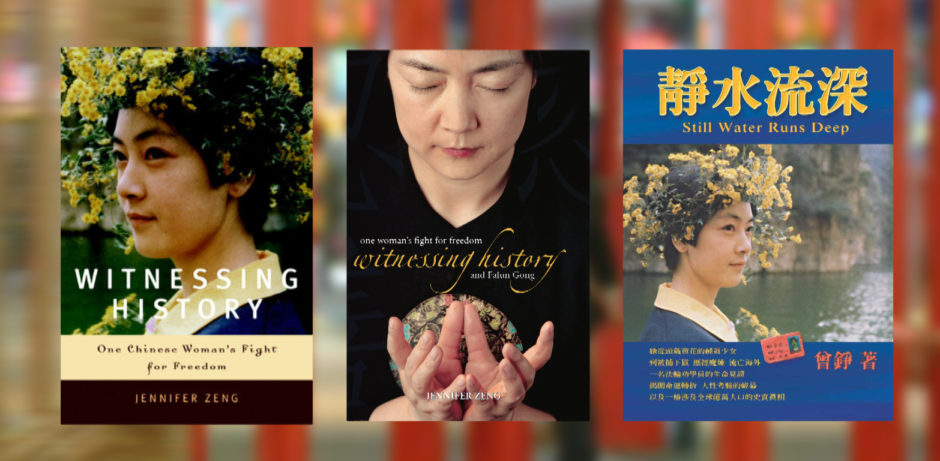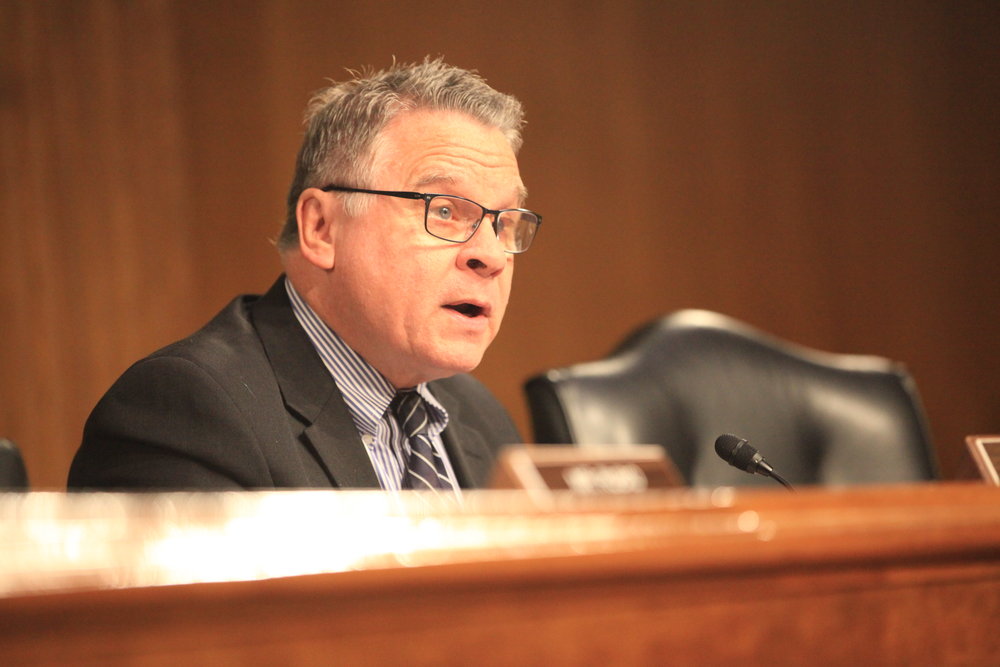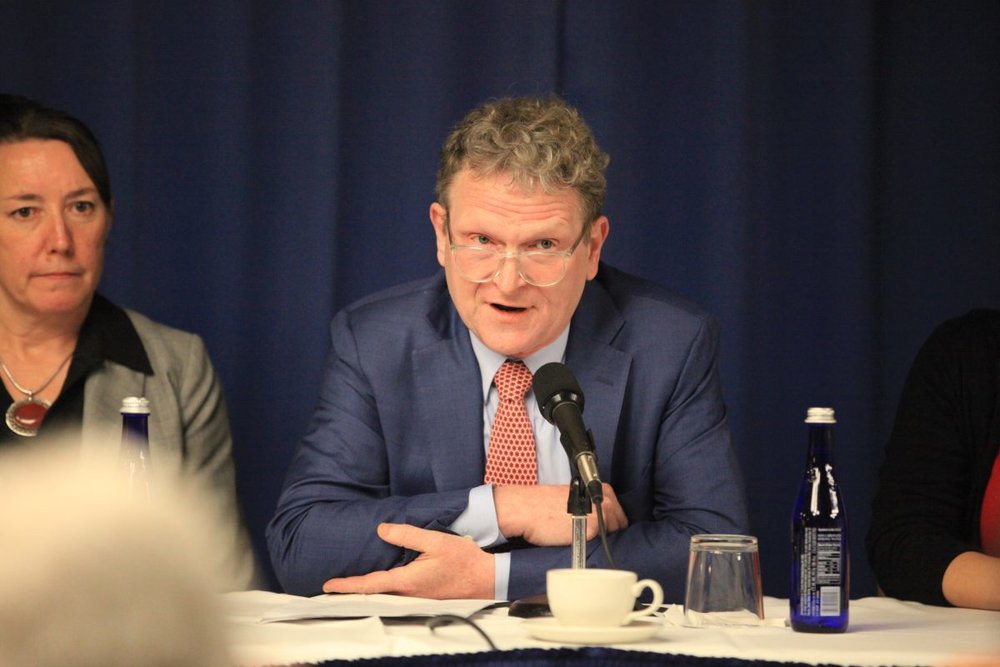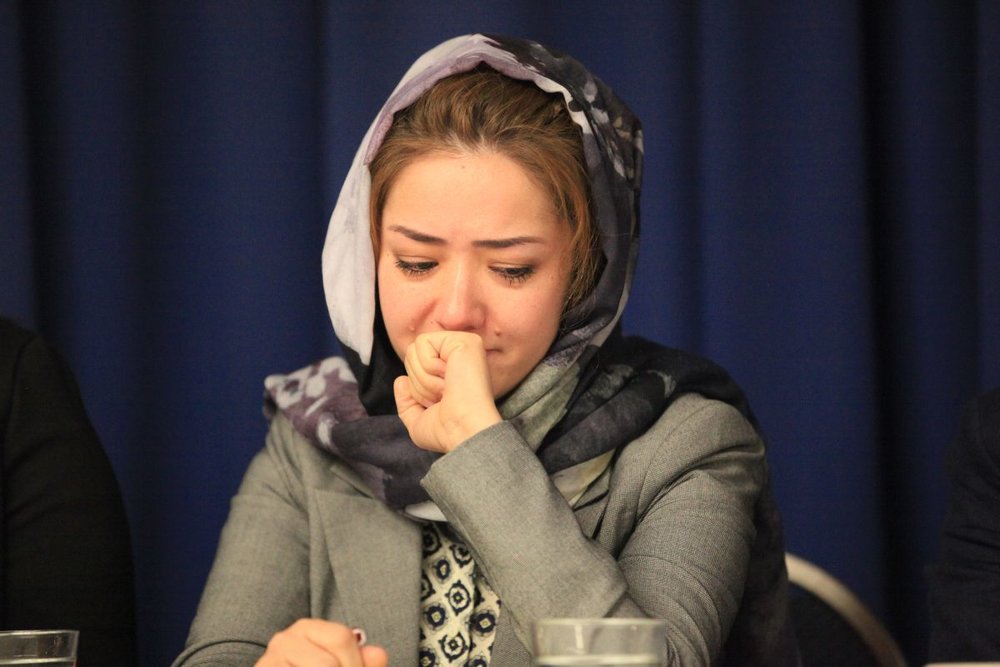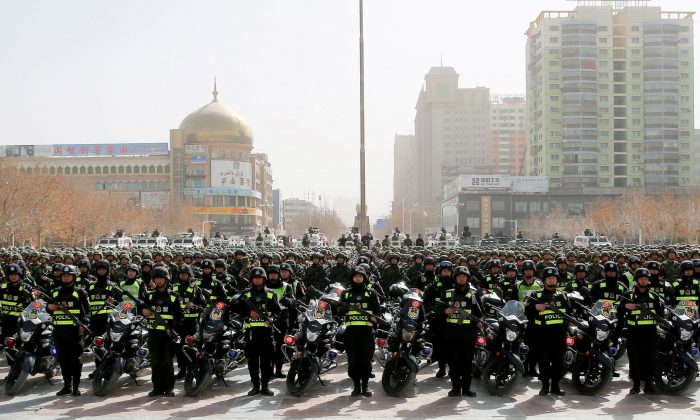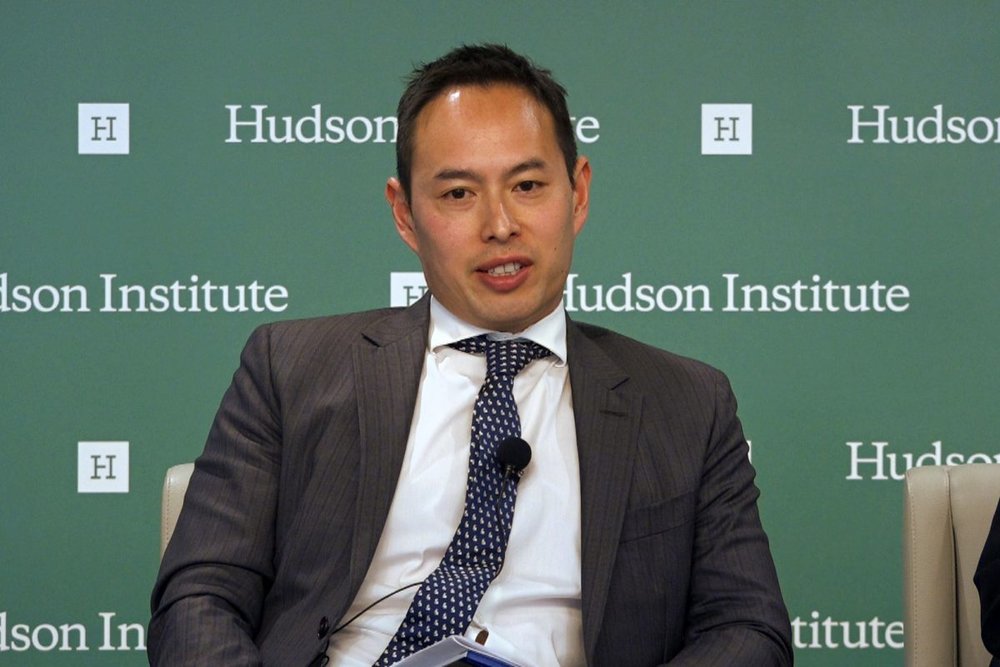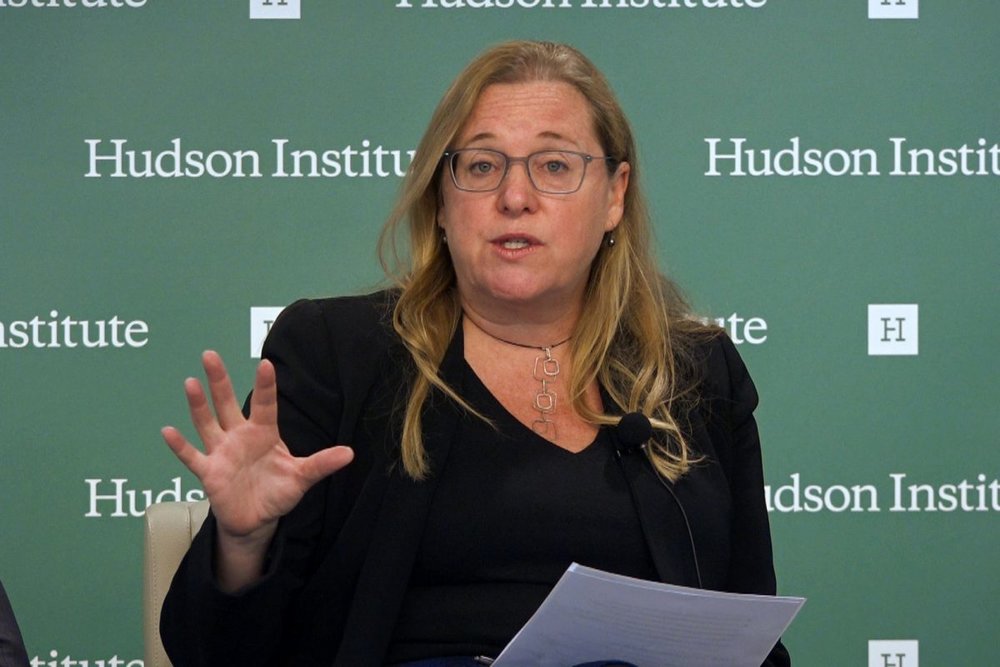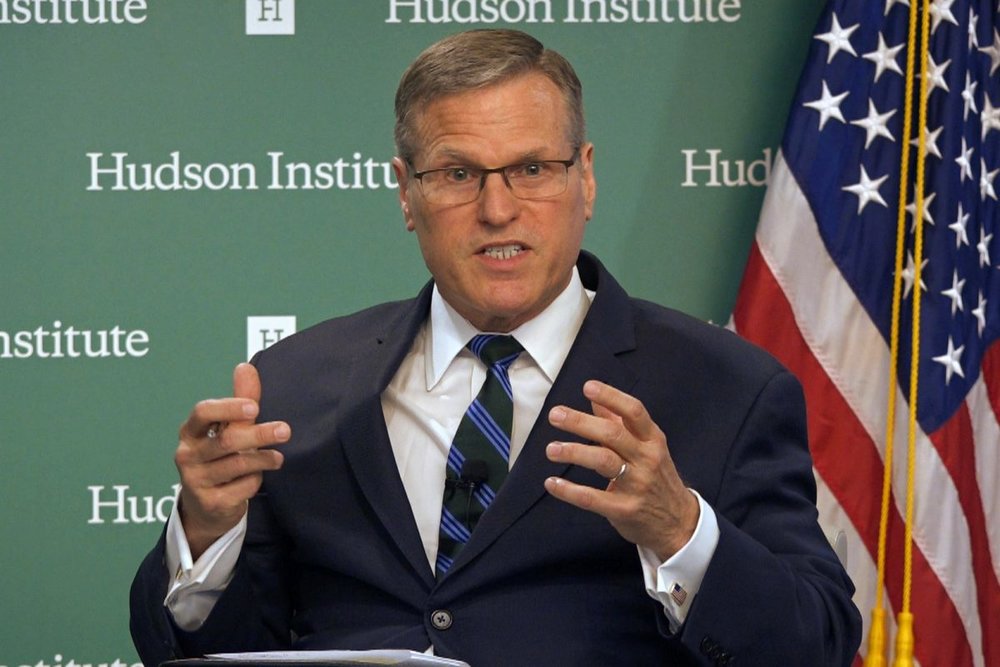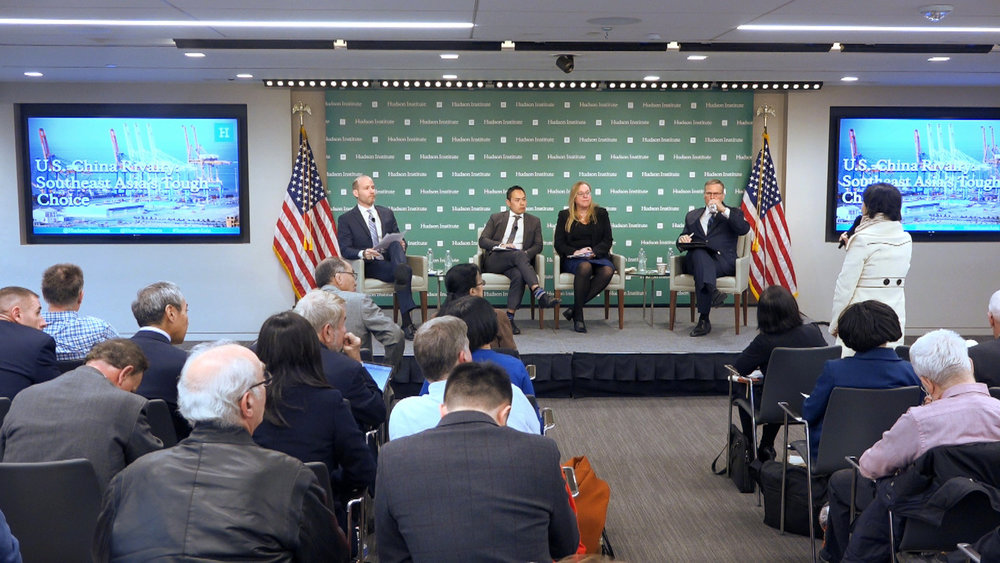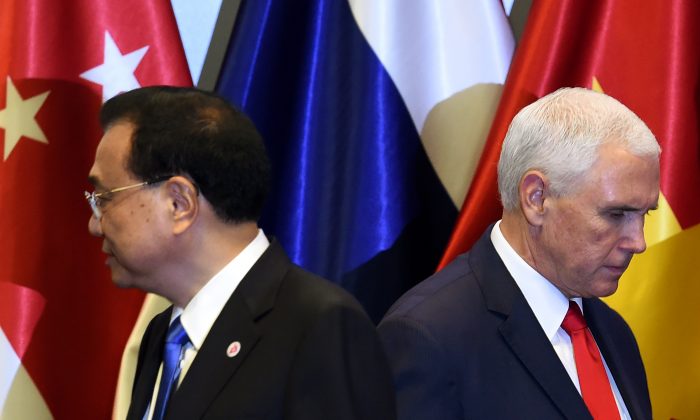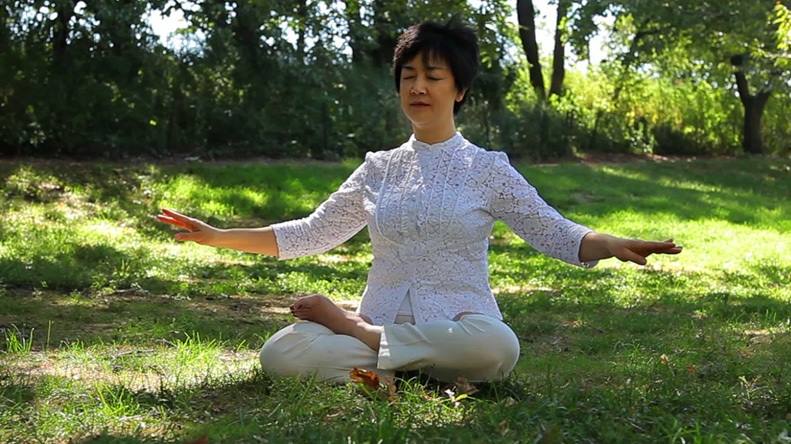The specter of communism did not disappear with the disintegration of the Communist Party in Eastern Europe
BY EDITORIAL TEAM OF “THE NINE COMMENTARIES ON THE COMMUNIST PARTY”
November 17, 2018 Updated: November 18, 2018
The Epoch Times is serializing a translation from the Chinese of a new book, How the Specter of Communism Is Ruling Our World, by the editorial team of the Nine Commentaries on the Communist Party.
Table of Contents
Introduction
1. State Terrorism Under Communist Regimes
2. How Communist Regimes Exported Terror
3. The Communist Origins of Islamic Extremism
a. Sayyid Qutb: The Marx of Islamic Extremism
b. The Leninist Vanguard of Jihad
c. The Communist Core of Islamic Extremism
d. Qutb and the Rise of Terrorism
e. How Communism Has Victimized Ordinary Muslims
4. The Chinese Communist Party’s Support of Terrorism
a. The CCP’s Support of Yasser Arafat’s Terrorist Activities
b. The CCP’s Ties to Al-Qaeda
5. The Hidden Alliance Between Terrorism and the Western Radical Left
Conclusion
References
Introduction
On the morning of September 11, 2001, terrorists hijacked passenger airliners and flew them into the World Trade Center twin towers in New York, as well as the Pentagon in Washington, D.C., killing nearly 3,000 people. It was the first time since the Japanese attack on Pearl Harbor that the United States suffered a blow of this scale on its own soil. The 9/11 attacks had worldwide impact. The United States launched a global War on Terror, overthrowing the Islamic regime in Afghanistan and the Iraqi dictatorship of Saddam Hussein.
The public has since become familiar with the terrorist movement and its representatives, such as Al-Qaeda and Osama bin Laden. Few, however, are aware of the close relationship between terrorism and communism.
The terms “terrorism” and “terrorist” first appeared in 1795 as a reference to the Reign of Terror during the French Revolution, [1] which laid the foundations for the communist movement (see Chapter Two of this book).
In the modern world, terrorism comes primarily in three forms: state terrorism under communist regimes, terrorist activity carried out abroad by the agents of communist regimes with the aim of spreading violent revolution, and Islamic extremism, which owes much of its ideology and methods to communism.
1. State Terrorism Under Communist Regimes
The communist century is a century of lies, violence, and killing. Terrorism is an important tool for communists to spread their ideology around the world. The rise of a communist regime, in turn, results without exception in the mobilization of the state machine to impose terrifying brutality. This government-sponsored repression is state terrorism.
Vladimir Lenin relied on terrorism to take power in Russia. In 1918, Felix Dzerzhinsky, whom Lenin regarded as a revolutionary hero for his role as director of the All-Russian Extraordinary Commission (Cheka), said plainly,“We stand for organized terror — this should be frankly admitted.” [2]
The Marxist Karl Kautsky, who in 1919 published Terrorism and Communism, gave a comprehensive overview of what would come to pass under the proletarian dictatorship that Lenin sought to establish. Examining the violence of the French Revolution, Kautsky concluded that Lenin’s Bolsheviks had inherited the terrorist character of the Jacobins and would repeat it. [3]
Yuri N. Afanasyev, a Russian historian, blamed Lenin for founding a policy of state terror, violence, and lawlessness: ”Violence is actually our entire history,” Afanasyev said. [4]
Following the creation of the Soviet Union, the communist regimes of Joseph Stalin, Mao Zedong, Pol Pot, Fidel Castro, Erich Honecker, Nicolae Ceaușescu, Kim Il Sung, and other despots all depended on killing to maintain their power. The violence and barbarism of their state terror has been addressed in previous chapters.
Violence and murder comprise but one component of communism’s terrorist agenda. Even more destructive is how communism uses the combined powers of political and religious fervor to indoctrinate people with communist party culture, planting the seeds of deceit, hatred, and violence to be passed from generation to generation.
2. How Communist Regimes Exported Terror
While imposing state terrorism on their own people, communist regimes support terrorist organizations abroad for the purpose of fomenting revolution or destabilizing rival states.
Anti-communist expert Brian Crozier, founder and director of the Institute for the Study of Conflict, spent decades studying the relationship between communism and terrorism, and published many books and papers detailing his findings. He served as an aide to anti-communist leaders such as Ronald Reagan and Margaret Thatcher in analyzing the use of terror by the communist bloc. [5]
Stanislav Lunev, a former officer in the Soviet military’s Main Intelligence Directorate (GRU) who defected to the West, accused the GRU of being one of the primary mentors of terrorists around the world. [6]
Many extremist groups that staged anti-U.S. attacks — among them the Popular Front for the Liberation of Palestine, Japanese Red Army commandos, Italy’s Red Brigades, Germany’s Red Army Faction, Turkish arms smugglers, and South American guerrillas — had the support of the Soviet KGB. In 1975, Richard Welch, director of the CIA in Athens, was assassinated by Greek Marxists. [7]
In 1979, top NATO commander General Alexander Haig was involved in an attack that wounded three of his bodyguards when a landmine exploded under their vehicle, which was following the general’s vehicle. In September 1981, General Frederick J. Kroesen, commander of the NATO Central Army Group, was injured in Heidelberg, West Germany, when members of the Red Army Faction fired an anti-tank rocket at his armored car.
The most influential form of modern terrorism, however, was the radical Islam nurtured by the Soviet bloc as a means of destabilizing the Muslim world.
In the first half of the twentieth century, the Middle East belonged to the Western colonial sphere. As peoples in the region gained independence, the Soviet Union took the opportunity to exert influence. Contradictions between Muslim denominations, Arab-Israeli conflicts, the Cold War, oil politics, and the clash of civilizations between the Western and Islamic cultural spheres have led to the complex and chaotic situation that the Middle East finds itself in today.
It was in this background that the Soviet Union carried out its penetration of the Muslim sphere. This may seem contradictory at first glance. Muslims follow an Abrahamic faith and believe in Allah, but Marxism-Leninism is atheist and aims for the elimination of religion. How could they be reconciled?
The communist movement resembles a plague that spreads through all available vectors. Communism made its first, albeit failed, advances on the Muslim world shortly after the October Revolution.
In June 1920, the Bolsheviks aided in the establishment of a Soviet regime in the Iranian province of Gilan, the Persian Socialist Soviet Republic or the Soviet Republic of Gilan. The regime carried out a series of radical reforms, including policies to expropriate landlords of their wealth, that were accompanied by a program of anti-religious propaganda. These measures proved exceedingly unpopular, and the regime was ousted by the following September.
Later, the concept of “Islamic socialism” began to take hold. Representatives include Yasser Arafat, leader of the Palestinian Liberation Movement (PLO), and Egypt’s Gamal Abdel Nasser. The PLO was supported by the Soviet Union and the Chinese Communist Party (CCP), and engaged in widespread terrorist activities.
Algeria, South Yemen, and Afghanistan were under communist rule for varying lengths of time during the Cold War. In 1979, the Soviet Union launched an invasion of Afghanistan and occupied the country for ten years in an attempt to prop up the last remaining communist regime in the Muslim world.
Promoting communism in an area with deeply held religious beliefs is a steep challenge. The Soviet Union’s efforts in directly exporting socialist revolution to the Muslim world proved very unsuccessful. However, while communism itself failed to establish control over the region, it did much to influence the creation and development of contemporary Islamic extremism.
Ion Mihai Pacepa, former three-star general in communist Romania and advisor to President Nicolae Ceauşescu, acting chief of his country’s foreign intelligence service and a state secretary of Romania’s Ministry of Interior, became the highest-ranking Eastern Bloc defector when he escaped to the United States in July 1978.
In his article “Russian Footprints,” Pacepa revealed a large amount of insider knowledge about communist support for terrorism in the Middle East. [8] He quoted Aleksandr Sakharovsky, the head of Soviet foreign intelligence, as saying, “In today’s world, when nuclear arms have made military force obsolete, terrorism should become our main weapon.”
Eighty-two aircraft hijackings were carried out in 1969 alone. Many of them were the work of the PLO with support from the Soviets and Chinese communists. Pacepa recalled that when he visited Sakharovsky’s office, he noticed a sea of small red flags dotting a world map. Each flag represented a hijacked plane.
Sakharovsky boasted to Pacepa that the tactic of aircraft hijacking was his own invention. Between 1968 and 1978, the Romanian security directorate made weekly aircraft deliveries of military supplies to Palestinian terrorists in Lebanon. Archives from the dissolution of East Germany show that that in 1983, the East German Foreign Intelligence Agency sent $1,877,600 worth of ammunition for Kalashnikov assault rifles to Lebanese terrorist organizations. Czechoslovakia provided Islamic terrorists with 1,000 tons of Semtex-H, an odorless plastic explosive.
In the early 1970s, Yuri Andropov, then-KGB head and later general secretary of the Soviet Communist Party, began a covert, meticulously planned propaganda campaign to sow the seeds of anti-Semitic and anti-American hate throughout the Arab and Islamic world. For his work, Andropov became known as the “father of an era of disinformation.” [9]
3. The Communist Origins of Islamic Extremism
The terrorist attacks of September 11, 2001, heralded a major shift in world affairs. Osama bin Laden and his Al-Qaeda took front-page news as the threat of Islamic extremism gained prominence.
For the vast majority of people around the world, 9/11 came as a shock and a tragedy. But in China, under the CCP’s censorship, reactions were quite different. From internet forums and chat rooms to university cafeterias, large numbers of people rooted for the terrorists, with comments such as “good job!” and “We strongly support the acts of justice against the United States.” According to a survey of 91,701 people on NetEase, a major Chinese website, only 17.8 percent of respondents expressed strong opposition to the terrorist attacks, while a majority of people chose “opposition to the United States” or “the best is yet to come” in regard to the catastrophe. [10]
The Chinese who cheered the terrorist attacks had never met bin Laden and his ilk, but the roots of their toxic thinking were the same. The Chinese have been poisoned by communist propaganda and Communist Party culture since childhood. Logically, however, one would wonder what connection this could possibly have with bin Laden, who had fought against the Soviet Union in Afghanistan.
The ideological source of bin Laden’s Islamic extremism can be traced back to Sayyid Qutb, the Egyptian pioneer of Islamic terrorism, a man who could be described as the Marx of Islamic jihad [11] and who is often referred to as the “godfather of modern jihad.” [12]
a. Sayyid Qutb: The Marx of Islamic Extremism
William McCants, counter-terrorism expert and former researcher at the Combating Terrorism Center at West Point, has observed that Islamic extremists often refer to Qutb’s teachings when explaining their motivations, and that many of them regard themselves as his successors. [13] Ayman al-Zawahiri, the leader of Al-Qaeda following the death of bin Laden, regarded Qutb’s thought as being the spark to ignite the fire of jihadi extremism.
In 2016, Middle East expert Hassan Hassan published a report with the Carnegie Endowment for International Peace called The Sectarianism of the Islamic State: Ideological Roots and Political Context. Toward the end of the report, Hassan quoted a popular summary of the Islamic State’s essential doctrine: “The Islamic State was drafted by Sayyid Qutb, taught by Abdullah Azzam, globalized by Osama bin Laden, transferred to reality by Abu Musab al-Zarqawi, and implemented by al-Baghdadis: Abu Omar and Abu Bakr.” [14]
Bin Laden and later the Islamic State (ISIS) adopted and expanded on the ideology of Qutb. In a nutshell, Qutbism is the pursuit of violence to destroy the rotten old society, or “jahiliya,” calling upon jihadis to lay down their lives for an ideology that will supposedly usher in human liberation. [15]
This bombastic style calls to mind the writings of Marx and Lenin, and with good reason: Qutb was a member of the Communist Party in his youth, and his ideas were steeped in the rhetoric of Marxism-Leninism. Robert R. Reilly, a senior fellow at the U.S. Foreign Policy Committee, has said that Qutb was actually a Communist International liaison for the Egyptian Muslim Brotherhood and the Communist Party of Egypt. [16]
Born in 1906, Qutb studied socialism and literature in the 1920s and 1930s. By 1940, he had already studied abroad in the United States for two years, and joined the Muslim Brotherhood after his return to Egypt. [17] Qutb had always had contact with army lieutenant Gamal Abdel Nasser, leader of the socialist-leaning Free Officer Movement.
In 1952, Nasser launched a military coup overthrowing the Muhammad Ali dynasty, a pro-Western monarchy. It is said that this socialist-revolution coup was planned by Qutb and the Brotherhood together with Nasser. However, while Qutb hoped Nasser would establish an Islamic regime, Nasser instead took the path of secularization, and in 1954 began suppressing the Muslim Brotherhood.
Qutb and the Brotherhood prepared to assassinate Nasser. The plot failed, and Qutb was accused of attempted murder and imprisoned. During his three years in prison, Qutb suffered severe torture. Later, conditions became more lax, and he was allowed to write. He wrote his two most important works while in prison — In the Shade of the Qur’an and Milestones. These two books, covering his views on the Qur’an, Islamic history, Egypt, and Western society, laid out in full his advocacy of anti-secular, anti-Western extremism.
Qutb was once briefly released from prison. He did not take the opportunity to leave Egypt and was jailed again. In 1966, Qutb was convicted of his involvement in the conspiracy to assassinate President Nasser and was executed by hanging.
Qutb’s subversive thinking bestowed the Islamic concept of jihad with a new interpretation. Upon mention of jihad, many immediately think of “holy war.” In Arabic, jihad simply means to struggle or to fight. To mainstream Muslims, it can be taken to mean internal conflict (self-perfection) or defensive jihad. [18] Qutb extended this definition to include proactive and unbridled use of violence in the holy war of jihad and laid out its theoretical foundations. [19] Qutb took pride in walking up to the gallows and becoming a religious martyr.
Qutb’s philosophy held that any social system that abided by secular laws or ethics was an anti-Islamic “old society” — jahiliya (ignorance of religious truth, originally referring to society before the spread of Islam). Even a society that claimed itself Muslim could still be jahiliya. Qutb considered the Egyptian social system in which he lived to be one in which jahiliya was dominant, and therefore it had to be overthrown. [20]
According to Qutb, jahiliya was the greatest obstruction for both Muslims and non-Muslims, preventing them from fulfillment of Islamic values and law. He claimed that the old society had been forced on people and in the process, robbed them of their freedom. These enslaved people — analogous to the working class in Marxism — had the right to wage jihad to overthrow the oppression of jahiliya. Qutb advocated jihad as the means of liberation for all mankind, Muslim as well as non-Muslim. [21] When Qutb’s books became public, many Islamic leaders thought Qutb had gone too far and regarded his ideas as heresy. [22]
Qutb further borrowed the Marxist concept of “false consciousness,” which refers to the ordinary masses’ acceptance of the ruler’s ideals and culture. This consciousness thus prevents them from perceiving their own oppression or overthrowing capitalism in favor of socialism. For Qutb, those living under jahiliya don’t realize they are slaves, [23] which is why they do not engage in jihad to emancipate themselves.
“What is to be done?” as Lenin put it in his pamphlet by that name. Qutb had the same question, so he looked to Lenin for a solution.
b. The Leninist Vanguard of Jihad
Qutb’s writings are replete with vocabulary familiar to students of Marxism-Leninism, such as “vanguard,” “state,” “revolution,” and the like. The situation and challenges Lenin faced at the time of writing his pamphlet What Is to Be Done? mirrors the circumstances faced by Qutb as he formulated his own radical ideology. Lenin placed all hope for a successful revolution on a proletarian vanguard party. Qutb copied this theory and replaced the Leninist political party with Islamic extremist organizations.
Lenin puts heavy emphasis on the importance of organization and the vanguard. He identifies a clear distinction between spontaneity and consciousness, and coined the idea of party-building. According to Lenin, with only spontaneous action, workers can only make superficial demands, such as pay raises and eight-hour work days, but they lack the consciousness needed to liberate mankind.
Lenin believes that external vanguards (usually bourgeois intellectuals, who have the privilege of education) are required to incite and indoctrinate the workers, so that they realize that revolution is their only way out, and reach the understanding that only by liberating the entire mankind can themselves be liberated. In order to fully utilize the vanguard, a tightly knit political party is needed to totally arrange their activities and provide them with opportunities for underground work as professional revolutionaries. This political party, the proletarian political party, is the proletariat vanguard. [24]
Glenn E. Robinson, associate professor at the Naval Postgraduate School in Monterey, California, and Research Fellow at the Center for Middle Eastern Studies, University of California–Berkeley, said of radical Islam: “Although for obvious reasons jihadi ideologues do not cite Lenin as an inspiration, their concepts and logic, especially Sayyid Qutb’s, betray this influence. Having been educated in Egypt in the 1940s, Qutb would certainly have been exposed to Lenin’s writings. Two key concepts from Qutb come straight from Lenin: jama’a (vanguard) and manhaj (program).”[25]
Drawing from the essence of Leninism, Qutb advocated the organization of a Muslim version of the Leninist vanguard party.
“Qutb made precisely the same argument for the Muslim world,” Robinson wrote. “The vast majority of Muslims were too caught up in and corrupted by the system of unjust and anti-Islamic rule to know how and when to take up arms against the state. A dedicated vanguard of jihadi cadres was needed to organize direct action against the state.”[26] Also, “Lenin’s insistence on the centrality of the vanguard’s having a detailed and coherent program for undertaking and then consolidating the revolution was likewise echoed, with an Islamic tone, in Qutb’s writings.”[27]
To Qutb, this vanguard, which consists of what he calls “true Muslims” — or extremists — has the revolutionary mission of liberating all Muslims and the whole of human civilization. The vanguard must strike hard on false Muslims, follow Islamic ideology as determined by Qutb’s interpretation, establish a new nation based on Islamism, and use violence to impose Islam on the rest of the world.
In addition to the vanguard, Qutb’s theory also includes rhetoric advocating “social equality,” elimination of classes, anti-government activity, and the liberation of mankind.[28] All these points echo the stated aims of communism.
After Qutb’s death, his brother Muhammad Qutb continued to publish his books. The book Ma’arakat ul-Islam war-Ra’samaaliyyah, published in 1993, again exposes Qutb’s communist inspiration. Qutb blatantly states that Islam is a “unique, constructive and positivist aqidah, which has been moulded and shaped from Christianity and Communism together, [with a] blending in the most perfect of ways and which comprises all of their (i.e. Christianity’s and Communism’s) objectives and adds in addition to them harmony, balance and justice.”[29]
c. The Communist Core of Islamic Extremism
Class struggle is another Marxist idea central to Islamic extremism. Karl Marx spent his whole life trying to incite conflicts between the proletariat and the bourgeoisie in order to amplify these conflicts to the point of no return and finally “solve” the conflict through revolution. The Islamic extremists operate in much the same way.
Did destroying the World Trade Center in Manhattan do anything to help realize the united Muslim world that Qutb wanted? Absolutely not. It was merely a means of exacerbating the conflict between the Western and Muslim worlds. In the West, the terrorist attacks incited hatred of Muslims, and vice versa in the Muslim countries. [30] Their method is the same as the conflicts between the proletariat and the bourgeoisie promoted by Marx and Lenin in order to create the conditions needed for launching revolution.
It is no exaggeration to say that Qutb’s theories bear greater resemblance to communism than to traditional Islam. While the Islamic extremists profess a religious opposition to communism, in fact, they absorbed the pure essentials of communist revolutionary doctrine. As one scholar has noted, “The arguments made here are that the real enemy confronting the free world remains Communism and that radical Islam is nothing more than Communism cloaked in the traditional garments of Islam.” [31]
It is not only in the Muslim world where violent extremism has been introduced. The Western counterculture movement spread leftist ideology around the world, and with it Lenin’s terrorist teachings. Finnish political historian Antero Leitzinger believes that modern terrorism was born between the years of 1966 and 1967, developing at the same time as the international communist movement. According to Leitzinger, this is no coincidence. In the 1960s, as radical student movements ran amok in the West, many foreign-exchange students from the Muslim world became connected to leftist thought and brought leftist concepts such as violent revolution back home with them. [32]
In 1974, Abdallah Schleifer, professor in media research at the American University in Cairo, met Ayman al-Zawahiri, who later became second in command of Al-Qaeda. Al-Zawahiri, who was studying medicine at Cairo University at the time, boasted that Islamic extremist groups recruited the most members from elite institutions, such as medical and engineering schools. Schleifer replied that he was not surprised: During the 1960s, these schools had the highest concentrations of young Marxists. He noted that Islamism was simply a new trend that developed in the student revolts of the 1960s.
Schleifer recalled: “I said, ‘Listen, Ayman, I’m an ex-Marxist. When you talk, I feel like I’m back in the Party. I don’t feel as if I’m with a traditional Muslim.’” [33]
It is curious that many associate Islamic extremism with fascism (Islamofascism), and for various reasons, fail to mention its communist origins. Fascism is a form of nationalism and has no particular religious background. When considering Islamic extremism in terms of its overall approach and doctrine, it becomes apparent that it shares more in common with communism.
d. Qutb and the Rise of Terrorism
Qutb’s writings influenced many young Arabs, including the Palestinian scholar and later one of the founders of Al-Qaeda, Abdullah Yusuf Azzam. [34] The 9/11 Commission Report outlined Qutb’s influence on bin Laden’s worldview, and also referred to Azzam directly as “a disciple of Qutb.” [35]
Muhammad Qutb, Sayyid Qutb’s younger brother, was also one of the primary transmitters of Qutb’s views. Muhammad Qutb later went to Saudi Arabia and became a professor who conducted research on Islam, and at the same time, was also responsible for editing, publishing, and promoting his late brother’s theories.
Bin Laden read Qutb’s books when he was a student, and he was familiar with Muhammad Qutb, regularly attending the latter’s weekly public lectures. The former CIA official who oversaw the group in charge of bin Laden, Michael Scheuer, also senior researcher at The Jamestown Foundation, described Muhammad Qutb as bin Laden’s mentor. [36]
The aforementioned Al-Qaeda second-in-command, Ayman al-Zawahiri, is also a fanatical disciple of Sayyib Qutb. [37] When he was a youth, Zawahiri repeatedly heard from his uncle about Qutb’s character and how great he was to suffer in prison. [38] After Qutb’s death, Zawahiri wrote in his memoirs: “The Nasserite regime thought that the Islamic movement received a deadly blow with the execution of Sayyid Qutb and his comrades, but the apparent surface calm concealed an immediate interaction with Sayyid Qutb’s ideas and the formation of the nucleus of the modern Islamic jihad movement in Egypt.” [39]
In the year that Qutb was hanged, Zawahiri, then 15, helped form an underground militant cell determined to “put Qutb’s vision into action.” [40] After that, Zawahiri joined the Egyptian Islamic Jihad and later became bin Laden’s mentor and an important member of Al-Qaeda. After bin Laden was killed, Zawahiri became the leader of Al-Qaeda.
Glenn E. Robinson, the Middle East expert quoted above, said that in the Sunni Muslim world, Qutb is the most important thinker who emphasized violent jihad. [41] Virtually all the concepts and innovations of the Sunni jihad groups can be found in Qutb’s books. [42] Although the various jihadi groups may differ in form, they all share one point in common, namely, the use of violence under the banner of Islam to realize their political aims. [43]
The 1981 assassination of the Egyptian president Anwar Sadat by the Egyptian Islamic Jihad, and the Egyptian terrorist group al-Gamma al-Islamiyah’s attacks against government officials, secular intellectuals, Egyptian Christians, and tourists in the 1990s are all steps in the campaign to bring about Qutb’s vision. [44]
The radical jihadi groups that pursue Qutb’s ideology are categorized as Salafi jihadi terrorists. Robert Manne, professor of politics at La Trobe University, in Melbourne, Australia, called Qutb the “father of Salafi jihadism” and the “forerunner of the Islamic State.” [45] In his book The Mind of the Islamic State: ISIS and the Ideology of the Caliphate, he wrote: “Fifty years after Sayyid Qutb’s execution, this is what the tradition of Salafi jihadism, the mind of the Islamic State, has become. There are no more milestones to pass. We have finally reached the gates of hell.” [46]
The report A Persistent Threat: The Evolution of al Qa’ida and Other Salafi Jihadists by the Rand Corporation in America outlined Qutb’s influence on Salafi jihadis, and at the same time listed more than 40 Salafi jihadi groups. They are active across almost all continents. [47]
Looking at the various extremist Islamic organizations in existence, although they lack a united vision and are given to ideological infighting, there is one trait common to the overwhelming majority of them: Qutb’s aggressive form of jihad. They have essentially inherited Qutb’s work, which is communist revolution in a different form.
e. How Communism Has Victimized Ordinary Muslims
The 2011 Report on Terrorism published by the U.S. National Counterterrorism Center states that “in cases where the religious affiliation of terrorism casualties could be determined, Muslims suffered between 82 and 97 percent of terrorism-related fatalities over the past five years.” [48]
Country Reports on Terrorism 2016 lists a total of 11,072 terrorist attacks that caused 25,621 total deaths for that year alone. In addition, terrorist attacks were overwhelmingly likely to take place in Muslim-majority countries and areas: “Although terrorist attacks took place in 104 countries in 2016, they were heavily concentrated geographically. Fifty-five percent of all attacks took place in five countries (Iraq, Afghanistan, India, Pakistan, and the Philippines), and 75 percent of all deaths due to terrorist attacks took place in five countries (Iraq, Afghanistan, Syria, Nigeria, and Pakistan).” [49]
By contrast, terrorist attacks resulted in far fewer deaths in Western countries. A study conducted by the Cato Institute in September 2016, Terrorism and Immigration: A Risk Analysis, stated that foreign-born terrorists who entered the country, either as immigrants or tourists, were responsible for 3,024 of the 3,432 murders caused by terrorists on U.S. soil from 1975 through the end of 2015. This number includes the 2,983 people killed in the 9/11 attacks. [50] An average of seventy-four Americans are killed in terrorist attacks annually.
Despite the fact that extremist groups operate in the name of Islam, their biggest victim is Muslim society. This is because, whatever the superficial excuses, the true motivation of terrorism is a desire for killing and destruction.
4. The Chinese Communist Party’s Support of Terrorism
The Chinese Communist Party (CCP) has long supported terrorist activities abroad, including those of Palestinian terrorist leader Yasser Arafat. Helping to pioneer the tactic of hijacking commercial airlines, Arafat targeted U.S. forces and became an inspiration for Osama bin Laden.
a. The CCP’s Support of Yasser Arafat’s Terrorist Activities
Arafat started the Palestinian National Liberation Movement (FATAH) in 1959 and established the state of Palestine in November 1988. Until his death in 2004, he was the leading figure of various Palestinian militant organizations. Arafat was likely the CCP’s favorite Middle Easterner. He visited China fourteen times and met nearly every Chinese communist leader, including Mao Zedong, Zhou Enlai, Deng Xiaoping, and Jiang Zemin.
In 1964, Arafat established al-‘Asifah (“The Storm”), FATAH’s military wing, after which he immediately went to Beijing to meet with Chinese premier Zhou Enlai. Zhou reminded him to pay attention to his strategy and not to use counterproductive slogans such as those calling for the complete destruction of Israel. [51]
Besides providing weapons and financial support, Beijing often guided Palestine on how to wage conflict with the United States and Israel while expanding its influence on the international scene. The CCP also invited Palestinians to receive training in China. In January 1965, Arafat declared war on Israel in north Palestine using his guerrilla organizations. In May 1965, the Palestine Liberation Organization (PLO) set up an office in Beijing. In an unprecedented move, China afforded the PLO office diplomatic treatment and openly supported the PLO in various international events.
In November 1988, the nineteenth session of the Palestinian National Council announced the independence of the Palestinian state. Beijing immediately acknowledged it and established diplomatic relations on Nov. 20.
Arafat and the then-CCP general secretary Jiang Zemin visited each other in 2000 and 2001, a time in which bloody conflicts broke out on a large scale between Palestine and Israel. Israel repeatedly condemned Arafat for his role in the violence. With the CCP’s support, Arafat was able to contend with the United States and Israel while further damaging the stability of the Middle East.
The PLO and FATAH were involved in various open and underground militant terrorist activities. They claimed that violent revolution was the only way to liberate the country, an ideology that follows the same doctrine of communist movements. Arafat was very close to other communist countries. He was a member of the Socialist International, and FATAH was an observer in the Party of European Socialists (PES). [52]
The United States and Israel have marked Arafat as the man behind a number of terrorist attacks in the Middle East. The White House identified FATAH and the PLO as terrorist organizations and closed the Palestine Information Office in 1987. [53]
In 1970, FATAH planned and carried out the unsuccessful assassination of Jordan’s King Hussein bin Talal. [54] In September that year, FATAH hijacked three commercial planes from Britain, Germany, and Switzerland in front of the television cameras. The terrorists claimed that hijacking a plane had a greater effect than killing a hundred Israelis in battle. [55]
In 1972, the terrorist group Black September, a militant faction of FATAH, carried out a terrorist massacre of Israeli athletes at the Olympic Games in Munich. The person who planned and carried out this massacre was Ali Hassan Salameh, Arafat’s head of security and director of FATAH intelligence. In addition to the eleven Israelis killed in the attack, a West German police officer also died. [56] Arafat was one of the first militants to target innocent civilians in his operations.
b. The CCP’s Ties to Al-Qaeda
The CCP has had far-reaching interactions with Al-Qaeda, beginning with its clandestine collaboration with the Taliban, which provided protection for bin Laden. In 1980, in addition to sending about three hundred military advisers to the mujahideen in Afghanistan, the CCP also set up military training camps in Kashgar and Hotan in Xinjiang to instruct them in skills such as the use of weapons, military strategy, propaganda, and espionage.
Xinjiang became the base for training the Afghan mujahideen to fight the Soviet Union. By the time the Soviet Union withdrew from Afghanistan, the Chinese military had trained at least several thousand jihadis. It provided them with machine guns, rocket launchers, and surface-to-air missiles, altogether two to four billion U.S. dollars in value. [57]
The CCP maintained close ties with the Taliban and Al-Qaeda after the Taliban seized power in Afghanistan, as well as in the period when the Taliban provided protection for bin Laden. Even though Al-Qaeda carried out terrorist attacks on the U.S. Embassy and the U.S. Navy, and the Taliban refused to hand over bin Laden to the United Nations, the CCP has always opposed U.N. sanctions against the Taliban. In 1998, the United States attacked Al-Qaeda bases with cruise missiles. The Chinese regime paid Al-Qaeda $10 million to purchase unexploded U.S. missiles so as to improve its own technology. [58]
At the same time, the CCP continued to provide sensitive military technology to state sponsors of terrorism. [59] At the end of 2000, the U.N. Security Council proposed sanctions on the Taliban to force it to close bin Laden’s terrorist training camps located on its territory, but China abstained from the vote. After that, the CCP continued secret negotiations with the Taliban and reached an agreement to have Huawei Technologies help the Taliban establish an extensive military communication system throughout Afghanistan. [60] On the day of the 9/11 attacks, Chinese and Taliban officials signed a contract to expand economic and scientific cooperation. [61]
More shockingly, after the 9/11 attacks, two Chinese military officers were hailed as national heroes for their authorship of a book titled Unrestricted Warfare, which was published in 1999. In the book, they suggested that if the World Trade Center in New York were attacked, it would open up a complicated dilemma for the United States. The authors also named Al-Qaeda as an organization with the ability to carry out such an operation. [62] Suffice it to say, the Chinese regime’s concept of “unrestricted warfare” provided theoretical guidance for bin Laden’s future operations.
When the U.N. Security Council imposed sanctions on the Taliban regime after 9/11, China not only abstained from the vote, but also sent military personnel to support the Taliban immediately after the U.S. military began airstrikes in Afghanistan. It was also after 9/11 that American intelligence agencies learned that ZTE and Huawei, China’s two military-linked tech companies, were helping the Taliban military establish a telephone network in Kabul, the capital of Afghanistan. [63]
In 2004, it was revealed that Chinese intelligence agencies used shell companies to help bin Laden raise funds and launder money in financial markets around the world. [64]
With the fall of the Berlin Wall, the communist camp faced total collapse. Having inherited the ideological garb of the Soviet Union, the CCP was left to face the tremendous pressure from the free world on its own. As it happened, 9/11 took place just as the United States and the free world began to focus their attention on condemning communist tyranny. Priorities changed dramatically, and the free world had to hold off its plan to combat communism as the War on Terror began. This gave the CCP a reprieve and allowed communism to expand once again.
While the Western world waged war in the Middle East, a large-scale transfer of wealth quietly took place between China and the United States. Communism was able to build another superpower.
The chaos caused by terrorism has caused the free world to divert its attention away from the communist menace, delaying the main conflict between good and evil as it plays out in our world.
5. The Hidden Alliance Between Terrorism and the Western Radical Left
A contemporary German musician said, “This is the greatest artwork in the entire universe.” He spoke not of Beethoven’s Ninth Symphony, but of the September 11 terrorist attacks. [65]
After 9/11, radical Western leftist intellectuals cheered the attacks and defended the perpetrators. One American writer praised the terrorists for destroying the “Tower of Babel” (that is, the World Trade Center) as a symbol of U.S. wrongdoing. An Italian playwright and Nobel laureate in literature said: “The economies in which [Wall Street] speculators roll killed tens of millions of people every year with poverty. What is a big deal if 20,000 people die in New York?” [66] A professor at the University of Colorado–Boulder campus characterized those working in the World Trade Center as “little Eichmanns,” referring to one of the architects of the Nazi Holocaust. [67]
Hoping to prevent the United States from carrying out military interventions in Afghanistan and Iraq, various radical left-wing forces launched a large-scale anti-war protest movement. Linguist and radical leftist thinker Noam Chomsky said in a speech at the Massachusetts Institute of Technology that the United States is “the largest country of terrorism” and that Washington planned to launch “a quiet genocide” in Afghanistan. [68]
The leftists held “peace vigils” and teach-ins around the country. While the United States’ operations against terrorists in Afghanistan were in full swing, Chomsky took a two-week trip to the Indian subcontinent, spreading rumors to millions of Muslims and Hindus. He accused the United States of planning to kill three or four million Afghans by hunger.
A professor at Columbia University said he hoped the U.S. military would suffer one million Mogadishus. [69] The Battle of Mogadishu refers to the 1993 Al-Qaeda ambush of U.S. special forces in Somalia in 1993, in which eighteen American soldiers were killed.
The anti-war movement, initiated by the radical Left, targeted the United States in order to hamper its efforts in the War on Terror.
In February 2003, a month before the United States attacked Iraq, bin Laden released an audio recording through Al Jazeera calling on people to fight against the U.S. military in the streets. He openly declared, “The interests of Muslims and the interests of the socialists coincide in the war against the crusaders.” [70]
ANSWER (Act Now to Stop War and End Racism) is an anti-war organization with prominent exposure in the media. Its members are mostly socialists, communists, and leftists or progressives. Many of its founders have ties with the International Action Center and the Workers World Party, a communist radical organization. In this sense, ANSWER is actually a front-line force aligned with Stalinist communism. Also participating in the anti-war movement is Not in Our Name, a front organization of the Revolutionary Communist Party, which is a Marxist-Leninist party linked to the Chinese communist regime. [71]
In addition to actively whitewashing terrorists and organizing anti-war movements, leftists in the legal community have gone all-out in opposing the Patriot Act, passed by Congress shortly after 9/11 to strengthen the U.S. counter-terror capabilities. Before the bill was passed, the FBI waited seven years before arresting Sami Al-Arian, a professor of computer science at the University of South Florida who provided terrorists with financial support. If an equivalent to the Patriot Act had existed earlier, arresting Arian earlier might have prevented the September 11 attacks. [72]
The blind Sheikh Omar Abdel-Rahman, who planned the 1993 World Trade Center bombing, was sentenced to life imprisonment in 1995. His defense lawyer, Lynne Stewart, visited the prison and passed a message from Abdel-Rahman to followers in the Middle East, telling them to continue their terrorist activities. Stewart was found guilty in 2005. Surprisingly, after her guilty verdict, she became a political idol for the Left and has been repeatedly invited to lecture at universities, law schools, and other venues. [73]
A 2004 study by American scholar David Horowitz titled Unholy Alliance: Radical Islam and the American Left reveals the nefarious connection between Islamic extremists and radical leftists. According to his analysis, the radical Left around the world has served to cover for Islamic jihadis. [74]
Standing with terrorists against Western democratic states is part of the radical Left’s long march to destroy Western society from within. They are willing to use any method that helps them achieve this goal. Though leftist ideology has no superficial relationship with Islamic extremism, their objectives coincide to form a pernicious alliance against the Western world and become a powerful tool for communism.
Conclusion
From the Paris Commune and Lenin’s institutionalization of violence, to the CCP’s state-sponsored persecutions, communism has always used terrorism to achieve its aims. Moreover, beyond the territory controlled by communist regimes, communism has manipulated a variety of groups and people to carry out terrorist acts, sowing chaos around the world and throwing up a diversionary smokescreen for its enemies. Advancements in science and technology have made it easier for terrorists to endanger innocent victims.
Terrorists use violence to throw society into disorder, and use fear to bring people under their control. They violate the moral values held universally across humanity in order to achieve their ends. The roots of communism can be seen in their core ideas, as communist ideology provides a theoretical framework for their evil values.
The primary victims of Islamic extremism are the people of countries from which terrorists originate. While the media focuses its attention on terrorist attacks that target Western society, the vast majority of those killed are Muslims. Similarly, the more than 100 million deaths caused by communism were nearly all those of people living under the rule of communist regimes.
Terrorism is inseparable from communism, which itself is the greatest root cause of terrorism around the world. Until these toxic roots are dug out, mankind will not enjoy a single day of peace. Only by recognizing the role of communism in the terrorist activities that plague our world, and by standing on the side of traditional moral values and faith can people safeguard themselves against this menace.
References
[1] Brian Whitaker, “The Definition of Terrorism,” The Guardian, May 7, 2001, https://www.theguardian.com/world/2001/may/07/terrorism.
[2] “Lenin and the Use of Terror,” World Future Fund, accessed November 17, 2018, http://www.worldfuturefund.org/wffmaster/Reading/Quotes/leninkeyquotes.htm.
[3] Karl Kautsky, Terrorism and Communism: A Contribution to the Natural History of Revolution (1919), accessed November 17, 2018, https://www.marxists.org/archive/kautsky/1919/terrcomm/index.htm.
[4] Carey Goldberg, “‘Red Saturday’ Not Such a Celebration for Lenin,” Associated Press, April 21, 1990,https://apnews.com/0f88bdb24ea112b606c9c56bca69e9dd; Francis X. Clines, “Upheaval in the East; Soviet Congress Debates New Presidency,” The New York Times, March 13, 1990, https://www.nytimes.com/1990/03/13/world/upheaval-in-the-east-soviet-congress-debates-new-presidency.html.
[5] Brian Crozier, The Rise and Fall of the Soviet Empire (Rocklin, CA: Prima Lifestyles, 2000).
[6] Stanislav Lunev, Through the Eyes of the Enemy: The Autobiography of Stanislav Lunev (Washington, D.C.: Regnery Publishing, Inc., 1998), 80.
[7] “The KGB’s Terrorist Footprints,” The Washington Post, September 23, 1981,https://www.washingtonpost.com/archive/politics/1981/09/23/the-kgbs-terrorist-footprints/16f129fd-40d7-4222-975c-6e39044768bf/?utm_term=.0f15a9d808da.
[8] Ion Mihai Pacepa, “Russian Footprints,” National Review, August 24, 2006, https://www.nationalreview.com/2006/08/russian-footprints-ion-mihai-pacepa/.
[9] Ion Mihai Pacepa and Ronald Rychlak, Disinformation: Former Spy Chief Reveals Secret Strategies for Undermining Freedom, Attacking Religion, and Promoting Terrorism (Washington, D.C.: WND Books, 2013), Chapter 33.
[10] “A Sampling of Chinese Public Opinion Following the 9/11 Terrorist Attacks,” [〈911恐怖分子袭击事件之后:国内言论摘登〉] Modern China Studies [《當代中國研究》] (2001, Fourth Issue), http://www.modernchinastudies.org/us/issues/past-issues/75-mcs-2001-issue-4/596-911.html. [In Chinese]
[11] Paul Berman, “The Philosopher of Islamic Terror,” The New York Times Magazine, March 23, 2003, https://www.nytimes.com/2003/03/23/magazine/the-philosopher-of-islamic-terror.html.
[12] Raymond Ibrahim, “Ayman Zawahiri and Egypt: A Trip Through Time,“ The Investigative Project on Terrorism: A Special Report, November 30, 2012, https://www.investigativeproject.org/3831/ayman-zawahiri-and-egypt-a-trip-through-time.
[13] Dale C. Eikmeier, Qutbism: An Ideology of Islamic-Fascism, Defense Technical Information Center, March 2007, accession number ADA485995, http://www.dtic.mil/docs/citations/ADA485995.
[14] Hassan Hassan, The Sectarianism of the Islamic State: Ideological Roots and Political Context (Washington: Carnegie Endowment for International Peace, June 2016), 26, https://carnegieendowment.org/files/CP_253_Hassan_Islamic_State.pdf.
[15] Andrew McGregor, “Al-Qaeda’s Egyptian Prophet: Sayyid Qutb and the War On Jahiliya,” Terrorism Monitor 1, No. 3, May 4, 2005, https://jamestown.org/program/al-qaedas-egyptian-prophet-sayyid-qutb-and-the-war-on-jahiliya/.
[16] Robert R. Reilly, The Roots of Islamist Ideology (London: Centre for Research into Post-Communist Economies, February 2006), 4, http://crce.org.uk/briefings/islamistroots.pdf.
[17] Berman, “The Philosopher of Islamic Terror.”
[18] McGregor, “Al-Qaeda’s Egyptian Prophet,” https://jamestown.org/program/al-qaedas-egyptian-prophet-sayyid-qutb-and-the-war-on-jahiliya/.
[19] A. E. Stahl, “‘Offensive Jihad’ in Sayyid Qutb’s Ideology,” International Institute for Counter-Terrorism, March 24, 2011, https://www.ict.org.il/Article/1097/Offensive-Jihad-in-Sayyid-Qutbs-Ideology#gsc.tab=0.
[20] McGregor, “Al-Qaeda’s Egyptian Prophet.”
[21] Stahl, “‘Offensive Jihad’ in Sayyid Qutb’s Ideology.”
[22] McGregor, “Al-Qaeda’s Egyptian Prophet.”
[23] Roxanne L. Euben, “Mapping Modernities, ‘Islamic’ and ‘“Western,’” in Border Crossings: Toward a Comparative Political Theory, ed. Fred Reinhard Dallmayr (Lanham, Md.: Lexington Books, 2013), 20.
[24] Vladimir Lenin, What Is to Be Done? trans. Joe Fineberg and George Hanna, accessed November 17, 2018, https://www.marxists.org/archive/lenin/works/1901/witbd/.
[25] Glenn E. Robinson, “Jihadi Information Strategy: Sources, Opportunities, and Vulnerabilities,” in Information Strategy and Warfare: A Guide to Theory and Practice, eds. John Arquilla and Douglas A. Borer (London: Routledge, 2007), 92.
[26] Ibid.
[27] Ibid.
[28] McGregor, “Al-Qaeda’s Egyptian Prophet.”
[29] “Impaling Leninist Qutbi Doubts: Shaykh Ibn Jibreen Makes Takfir Upon (Declares as Kufr) the Saying of Sayyid Qutb That Islam Is a Mixture of Communism and Christianity,” January 2, 2010, http://www.themadkhalis.com/md/articles/bguiq-shaykh-ibn-jibreen-making-takfir-upon-the-saying-of-sayyid-qutb-that-islam-is-a-mixture-of-communism-and-christianity.cfm.
[30] Damon Linker, “The Marxist Roots of Islamic Extremism,” The Week, March 25, 2016, http://theweek.com/articles/614207/marxist-roots-islamic-extremism.
[31] Chuck Morse, Islamo-Communism: The Communist Connection to Islamic Terrorism (City Metro Enterprises, 2013), Introduction.
[32] Antero Leitzinger, “The Roots of Islamic Terrorism,” The Eurasian Politician, No. 5 (April–September 2002), http://users.jyu.fi/~aphamala/pe/issue5/roots.htm.
[33] Lawrence Wright, The Looming Tower: Al-Qaeda and the Road to 9/11(New York: Knopf Publishing Group, 2006), 21.
[34] Dawn Perlmutter, Investigating Religious Terrorism and Ritualistic Crimes (New York: CRC Press, 2004), 104.
[35] The 9/11 Commission Report, The National Commission on Terrorist Attacks Upon the United States, 55, https://www.9-11commission.gov/report/911Report.pdf.
[36] Michael Scheuer, Through Our Enemies’ Eyes: Osama bin Laden, Radical Islam, and the Future of America, 2nd ed. (Washington: Potomac Books, 2006), 114.
[37] Lawrence Wright, The Looming Tower: Al-Qaeda and the Road to 9/11(New York: Knopf Publishing Group, 2006), 36.
[38] Lawrence Wright, “The Man Behind Bin Laden: How an Egyptian Doctor Became a Master of Terror,” The New Yorker, September 16, 2002, https://www.newyorker.com/magazine/2002/09/16/the-man-behind-bin-laden.
[39] Lawrence Wright, The Terror Years: From Al-Qaeda to the Islamic State(New York: Vintage Books, 2016), 17.
[40] Wright, The Looming Tower, 36.
[41] Glenn E. Robinson, “The Four Waves of Global Jihad, 1979–2017,” Middle East Policy 24, No. 3 (Fall 2017), 70, https://www.researchgate.net/publication/319160351_The_Four_Waves_of_Global_Jihad_1979-2017.
[42] Robinson, “Jihadi Information Strategy,” 88.
[43] Robinson, “The Four Waves of Global Jihad,” 85.
[44] Anthony Bubalo and Greg Fealy, “Between the Global and the Local: Islamism, the Middle East, and Indonesia,” The Brookings Project on U.S. Policy Towards the Islamic World, No. 9 (October 2005), 7, https://www.brookings.edu/wp-content/uploads/2016/06/20051101bubalo_fealy.pdf.
[45] Robert Manne, “Sayyid Qutb: Father of Salafi Jihadism, Forerunner of the Islamic State,” The ABC, November 7, 2016, http://www.abc.net.au/religion/articles/2016/11/07/4570251.htm.
[46] Joshua Sinai, “Mining the Roots of the ‘Why and How’ of Terrorism,” review of The Mind of the Islamic State: ISIS and the Ideology of the Caliphate, by Robert Manne, The Washington Times, October 31, 2017, https://www.washingtontimes.com/news/2017/oct/31/book-review-the-mind-of-the-islamic-state-by-rober/.
[47] Seth G. Jones, A Persistent Threat: The Evolution of al Qa’ida and Other Salafi Jihadists (Rand Corp, 2014), 64–65, https://www.rand.org/content/dam/rand/pubs/research_reports/RR600/RR637/RAND_RR637.pdf.
[48] 2011 Report on Terrorism, The National Counterterrorism Center, 14, https://fas.org/irp/threat/nctc2011.pdf.
[49] Country Reports on Terrorism 2016, Bureau of Counterterrorism and Countering Violent Extremism, https://www.state.gov/j/ct/rls/crt/2016/272241.htm.
[50] Alex Nowrasteh, Terrorism and Immigration: A Risk Analysis, Cato Institute, September 13, 2016, https://object.cato.org/sites/cato.org/files/pubs/pdf/pa798_1_1.pdf.
[51] Shi Yanchun, [時延春]“Zhou Enlai and the Middle East,” [〈周恩來與中東〉] Party History in Review [《黨史縱橫》] (2006, First Issue), 7–8. http://waas.cssn.cn/webpic/web/waas/upload/2011/06/d20110602193952375.pdf[In Chinese]
[52] Party of European Socialists, accessed November 17, 2018, https://www.google.com/url?q=https://web.archive.org/web/20130503194245/http:/www.pes.eu/en/about-pes/pes-members/parties&sa=D&ust=1542506434796000&usg=AFQjCNHwfLae215sWQn58IVwbGPeL_N0jg.
[53] “U.S. Orders Closure of Palestine Information Office, Department Statement, September 15, 1987, Transcript,” US Department of State Bulletin, November 1987,https://web.archive.org/web/20090808192756/http://findarticles.com/p/articles/mi_m1079/is_n2128_v87/ai_6198831/.
[54] Andrea L. Stanton, Edward Ramsamy, Carolyn M. Elliott, Peter J. Seybolt, eds., Cultural Sociology of the Middle East, Asia, and Africa: An Encyclopedia, Vol. 1 (Los Angeles: SAGE, 2012), 274.
[55] Stefan Aubrey, The New Dimension of International Terrorism (Zürich: vdf Hochschulverlag AG an der ETH, 2004), 34.
[56] Ibid., 34–36.
[57] S. Frederick Starr, Xinjiang: China’s Muslim Borderland, first ed. (London: Routledge, 2004), 149.
[58] John Hooper, “Claims that China Paid Bin Laden to See Cruise Missiles,” The Guardian, October 20, 2001, https://www.theguardian.com/world/2001/oct/20/china.afghanistan.
[59] Ted Galen Carpenter, “Terrorist Sponsors: Saudi Arabia, Pakistan, China,” The Cato Institute, November 16, 2001, https://www.cato.org/publications/commentary/terrorist-sponsors-saudi-arabia-pakistan-china.
[60] “China’s Role in Osama bin Laden’s ‘Holy War’ On America,” The Population Research Institute, 3, No. 23 (September 19, 2001), https://www.pop.org/chinas-role-in-osama-bin-ladens-holy-war-on-america/.
[61] Yitzhak Shichor, “The Great Wall of Steel: Military and Strategy in Xinjiang,” in Xinjiang: China’s Muslim Borderland, ed. S. Frederick Starr (London: Routledge, 2004), 158.
[62] Qiao Liang and Wang Xiangsui, Chao Xian Zhan (Unrestricted Warfare) (Beijing: Zhongguo shehui chubanshe, 2005), Chapters 2 and 5. [In Chinese]
[63] “Chinese Firms Helping Put Phone System in Kabul,” The Washington Times, September 28, 2001, https://www.washingtontimes.com/news/2001/sep/28/20010928-025638-7645r/.
[64] D. J. McGuire, “How Communist China Supports Anti-U.S. Terrorists,” Association for Asian Research, September 15, 2005, http://www.asianresearch.org/articles/2733.html.
[65] Jamie Glazov, United in Hate: The Left’s Romance with Tyranny and Terror (Los Angeles: WND Books, 2009), Chapter 14.
[66] Ibid.
[67] “Ward Churchill Profile,” Discover the Networks, accessed November 17, 2018, http://www.discoverthenetworks.org/individualProfile.asp?indid=1835.
[68] Glazov, United in Hate, Chapter 14.
[69] “Nicholas De Genova Profile,” Discover the Networks, accessed November 17, 2018, http://www.discoverthenetworks.org/individualProfile.asp?indid=2189.
[70] Glazov, United in Hate, Chapter 14.
[71] Ibid.
[72] Ibid.
[73] “Lynne Stewart Profile,” Discover the Networks, accessed November 17, 2018, http://www.discoverthenetworks.org/individualProfile.asp?indid=861.
[74] David Horowitz, Unholy Alliance: Radical Islam and the American Left(Washington D.C.: Regnery Publishing, Inc., 2004), 37.
Source: https://www.theepochtimes.com/chapter-fifteen-the-communist-roots-of-terrorism_2718226.html
